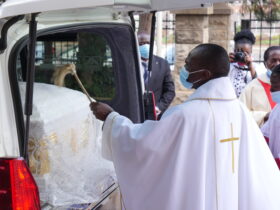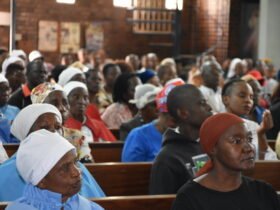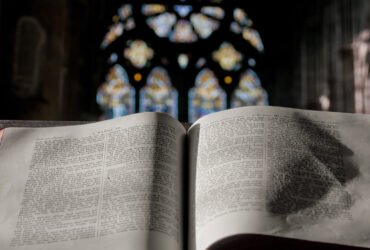The parables describe obvious situations which are not difficult to interpret and
most people are either encouraged by them to keep going or shocked into
questioning their own lives. But it can happen that they are twisted to fit a
current way of thinking that is not obvious and which can distort them.
The story of the ten bridesmaids or virgins is an example. The obvious
interpretation is that the wise ones were ready for the bridegroom when he came
while the foolish ones had not thought he might come at an unexpected hour
and were not ready. This story can be twisted to mean the foolish ones were the
poor and marginalised and the wise were selfish in not sharing what they had.
To interpret the parable in this way is to avoid the glaringly obvious intention of
Jesus.
The parable is about being ready, being alert and not putting off what I need to
do now. Jesus is not here talking about compassion and social justice. There
may be all sorts of reasons why I postpone taking steps but at least I can
acknowledge that I am avoiding doing what I know I should do. That’s a start. I
can look at myself, gently, and ask why I am ‘in denial’ as the saying goes.
The ‘oil’ in my lamp then becomes my agenda. What do I need to do? Well, to
begin with, I might see myself sitting with Jesus and the disciples on the Mount
of Olives – the setting for this parable. They were obviously looking at him.
Romano Guardini asked in one of his sermons: ‘What does it mean – to look at
Jesus?’ All religions search for God. We Christians say God has revealed
himself to us – in Jesus. So what do we see when we look at him? Because he is
the revelation of God. His words and stories mean nothing if they do not tell us
about God. We cannot analyse them apart from him.
And we cannot analyse them apart from the community he founded. I can give
my opinion but I have to test it in the stream of the interpretative tradition of the
Church. I have my beliefs but I want them to be in harmony with the tradition I
have inherited. I can come up with fresh insights into a text and so can you. So
can anyone. We have to look at Jesus and ask what he, in the community he
founded, says.
This ‘looking at Jesus’ is the heart of the matter. ‘We would like to see Jesus’
(John 12:21). It is encouraging for us to watch the disciples with Jesus, day in
and day out, and yet – for a long time – they did not really ‘see’ him. Maybe we
too are in a bit of ‘a daze’ (Mark 10:32) about him at times. We are to be alert,
awake, ready to see him any time – maybe when and where we least expect.
12 November 2023
By Fr David Harold-Barry SJ










Leave a Reply